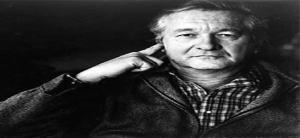As you probably know by now, The Confessions of Nat Turner is loosely based on a true story. And I use “loosely” in the true sense of the word. Very few facts were known about Nat Turner’s life, so William Styron took a lot of liberty in filling in those gaps.
The story is about a massive slave revolt that took place in 1831 in Virginia. Nat Turner was an extremely smart, self-educated, seemingly mild-mannered, polite slave who, after years of abuse, felt led by God to eventually murder as many white people as possible. He recruited a few dozen other slaves and eventually killed 55 white people over the course of two days.
The story is riveting, and Styron is creative in how he approaches telling it. He jumps back and forth between Nat’s confession to his lawyer and the events Nat is describing—his childhood, the different slaveowners he worked under, his “vision” from God, and ultimately the details of recruiting other slaves and the rebellion itself.
Styron seamlessly weaves all these events together. There’s no abrupt division between Nat’s confession and the flashbacks. On a few occasions, I was several sentences in before I realized I was in the middle of a flashback.
William Styron is brilliant in how he crafts the story, and it’s easy to see how he won the Pulitzer Prize. On the other hand, I thought the narration of the story, as told by Nat Turner, actually sounded much more like William Styron than Nat Turner.
For example:
As the only two-legged chattel in Shiloh, then, it befell my lot to not only do the chores for the Reverend Eppes–to chop kindling and haul spring water and feed Beauty, the sway-backed mare, and shell corn and slop the three pigs and build the morning fires, acting both as a sort of grotesque valet to the preacher in the shack he called a parsonage and as a sexton at the rickety church–but to be of service to the rest of the congregation as well.
I don’t know how a slave from the 1830s would narrate a story, but I don’t think that would be it. In fact, I don’t even think that sounds like a white man from the 1830s. It sounds like an author from the 1960s. The narration was a bit jarring in that sense.
If you can overlook that one (albeit large) beef with The Confessions of Nat Turner, you’ll get sucked into the novel pretty quickly.
The novel has been called racist by some African-American critics, but I don’t see it. The slave dialect is likely a little over the top—in the style of Margaret Mitchell’s characters in Gone With The Wind.

William Styron (Wikimedia Commons)
And Nat also seems to be obsessed with white women—mainly younger white women, so the novel can be slightly Lolita-ish in a few spots.
But is his obsession with white women an issue of race or simply an attraction toward the “forbidden?” In any case, I don’t believe the novel is racist, but I can see how it would rub some people the wrong way.
As mentioned above, the Confessions includes a few sexually explicit scenes (fantasies), so you need to be ready for that if you take on this novel.
In addition, you can’t expect a story about the chilling effects of slavery and the brutal murder of 55 people to not be brutally violent—and it can be just that at times—especially the last 50 pages of the novel in which Nat is describing the rebellion.
Confessions contain some horrid scenes of brutality, but it balances that with a lot of details about the day-to-day lives of these slaves.
The theme of the novel essentially comes down to how madness breeds madness. You’ve got white slaveowners who have been born into and become a part of this horrific system. They’ve got a distorted view of ethics and morality.
The black slaves are born into this mess as well, and they grow up believing they are somehow inferior to their lunatic masters. It’s a recipe for disaster.
You couple that with the fact that Nat Turner is a smart, educated slave with a Messiah complex—he’s a man who, literally, might have been insane—and the whole thing is just nuts. Madness breeds madness.
Ultimately, The Confessions of Nat Turner is an incredible, provocative novel. Styron sometimes gets in the way of the story, but, overall, I’d highly recommend this book.
Other Stuff
The Opening Line: “Above the barren, sandy cape where the river joins the sea, there is a promontory or cliff rising straight up hundreds of feet to form the last outpost of land.”
The Meaning: My take on the meaning: Madness breeds madness. Raised in a world of psychotic, racist slaveowners, Nat Turner succumbs to his own form of pyschosis.
Highlights: William Styron is such a good storyteller. He seamlessly takes you back and forth between Nat’s present situation and flashbacks to his past.
Lowlights: Styron gets in the way of Nat too often. The narration often sounds like a white man from the 1960s instead of a black slave from the 1830s. For me, it’s a noticeable issue that repeatedly distracted me from really appreciating the depth of the story.
Memorable Line: “I would have done it all again. I would have destroyed them all. Yet I would have spared one. I would have spared her that showed me Him whose presence I had not fathomed or maybe never even known.”
Final Thoughts: You’ll need to be mentally prepared to read this novel. It’s a doozy at times—with brutal violence and some graphic sexuality. If you like historical fiction, I believe you’ll definitely enjoy this one.

